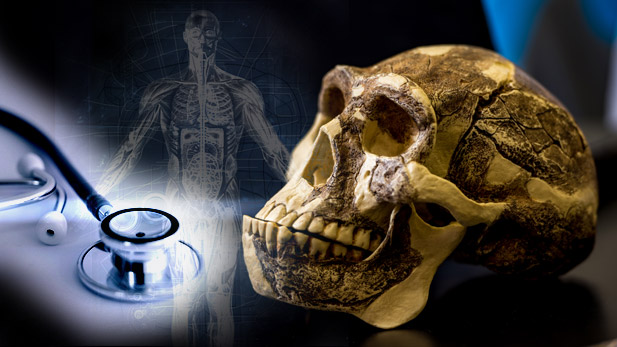Medical Anthropology Students Gain New Perspectives for Addressing Health Care Challenges

Students in the spring quarter Medical Anthropology course were challenged to research a global health topic and different cultural approaches for addressing it.
Sometimes, the only way for students to learn more is to "unlearn" what they think they already know. Students in Rose-Hulman’s spring quarter Medical Anthropology course, for example, had to move past their preconceived notions of health care in order to truly understand public health issues.
"We're constantly making a comparison between what we usually call Western biomedicine, which is what most of the students are exposed to and used to, and how that's one of many ways you could approach a medical or health problem," said the course instructor, Paul Christensen, PhD, associate professor of anthropology. "How can we think about some different ways or some combining of different systems in order to have more dignified, more helpful, more productive outcomes?"
Christensen challenged his students to research a global health topic of personal interest and present their findings in a public poster session on May 22 in Mussallem Union's Kahn Room on the Rose-Hulman campus. The goal was to gain an understanding of how medicine and healing differ based on context.
Natalie Hannum, who graduated in 2025 with a degree in biomedical engineering, chose to research polio vaccine campaigns in Pakistan while taking the course. Hannum noted a key takeaway for her was the importance of understanding how different cultures communicate as patients.
"When they're not behaving the way we think they should, stop and think about why,” Hannum said. “Be more sensitive and not jump to conclusions, but listen to people's beliefs."
Nicholas Jones, a 2025 NanoEngineering graduate, said, "I think medical anthropology is an interesting perspective. It teaches you to look at the underlying root causes of problems rather than just the effect those problems have, specifically in socioeconomic inequality."
Jones' project explored the rise of purported tourist "retreats" and the commercialization of Rastafarian cultural elements in Jamaica.
Other students examined cultural beliefs surrounding pain and the use of anesthesia, comparisons of rural health care in the U.S. and Ecuador, alcoholism rates in Russia after the fall of the Soviet Union, the impact of religious values on health care decisions, responses to the COVID-19 pandemic, and analyses of mental health conditions in different regions, among other topics that reached all corners of the globe and all aspects of health care.
The course helps Rose-Hulman students move past purely data-driven decision making and understand the human components involved in innovation, particularly in the health care industry. Students often find it to be an "eye-opening" experience that stays with them as they move throughout their educations and careers.
"It'll definitely stay in the back of my mind as a reminder to look at things from a different lens and broaden my spectrum of how I research something," said Carson McCord, a first-year student whose project explored the stigmatization of schizophrenia in both the U.S. and Nigeria.
Through films, books, and in-class discussion, students explored how cultural perceptions of bodies and their conditions impact health care approaches, including analyzing discourse discrepancies between medical journals and social media posts about various conditions. Their readings indicated how, around the world, these conditions are often judged to be a reflection of a person's moral character or worth, leaving the patients to grapple with their diagnoses without structural support.
"One of the things I really like them to take away from the class is that we often, even in societies we point to as successes or flourishing, rarely are judged by how we are treating those vulnerable populations," said Christensen. "I'm always struck by, of all the classes that I teach, this seems to be the one that generates the most resonance in them."
Perhaps it resonates because Rose-Hulman students are inherently curious learners who love to solve puzzles. Adopting a medical anthropology perspective provides the future scientists, mathematicians, engineers, health care professionals, and leaders with another set of tools to wield against any problem they may encounter, preparing them to solve some of the greatest challenges around the world.